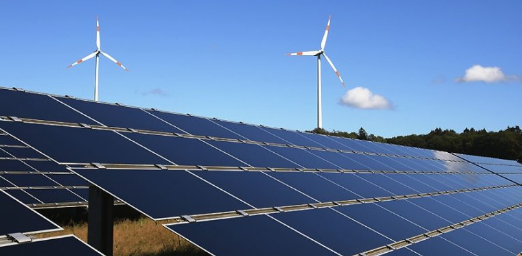Australian confidence in new clean energy investment has fallen to a record low, following a remarkable 2018 that saw the country shatter all records in terms of investment in renewables and new capacity additions.
According to a new report on investor confidence by the Clean Energy Council (CEC), the Australian clean energy sector is struggling, mainly due to grid connection issues, transmission concerns, and a lack of federal government policy support. The survey of 70 CEOs and senior executives across the renewable energy and storage industries shows that confidence to invest in new projects over the next three years has fallen to a record low of 6.1 out of 10, down from 7.1 just 12 months prior.
“As we have consistently said, without strategic and holistic reform of the Australian energy market, we are going to continue to see confidence in new clean energy investment continue to fall,” CEC Chief Executive Kane Thornton said.
The strict grid-connection demands of the Australian Energy Market Operator have delayed a number of large-scale projects across the country, undermining their economic viability. This has even caused some developers to walk away from projects, or bear the additional expense of installing extra components, such as costly synchronous condensers, in order to improve grid strength.
Grid challenges aside, there have been a lot of project commitments over the last couple of years, largely driven by the 2020 Renewable Energy Target. But with the target now officially achieved and surpassed by a substantial margin, the policy vacuum beyond 2020 is starting to take a toll on investment confidence.
In September, the CEC published a report showing that investment in renewable energy projects had slowed to levels not seen since the government of former Prime Minister Tony Abbott, due to policy uncertainty and mounting regulatory challenges. New clean energy investment has slowed significantly in 2019, with average quarterly investment in new generation capacity of just slightly more than 500 MW per quarter, compared to more than 1.6 GW per quarter in 2018. This reflects a reduction of more than 60% from 2018 levels.
“Australia has abundant natural resources and huge potential for renewable energy generation, but the industry has been plagued by policy and political uncertainty at the federal level for several years and we are now starting to see the impact of this,” Thorton said.
Other important challenges are also related to transmission, including insufficient investment in network capacity to address congestion and constraints, and concerns about marginal loss factors (MLFs). However, the Australian Energy Market Commission’s decision earlier in November to leave MLFs unchanged, in defiance of industry calls to simplify the methodology for assessing transmission and network losses, is expected to further weigh on investment confidence. The industry is also struggling with government intervention in the energy market and a lack of certainty about the timing of the country’s coal-fired power station phase-out plan, the survey found.
But despite the immense challenges, around 70% of respondents said they expected the number of people they employed to increase over the next 12 months. Industry leaders appeared to be slightly more optimistic in this regard than they were in the last survey in July.
“This reflects the incredible gains the industry is making, despite the significant issues around transmission, grid connection and energy policy,” Thornton said. “While some of the survey results are certainly disheartening, I hope that it will serve as a wake-up call to governments and regulators to begin taking the urgent action needed to boost confidence and deliver an affordable, reliable and clean energy system for all Australians.”






